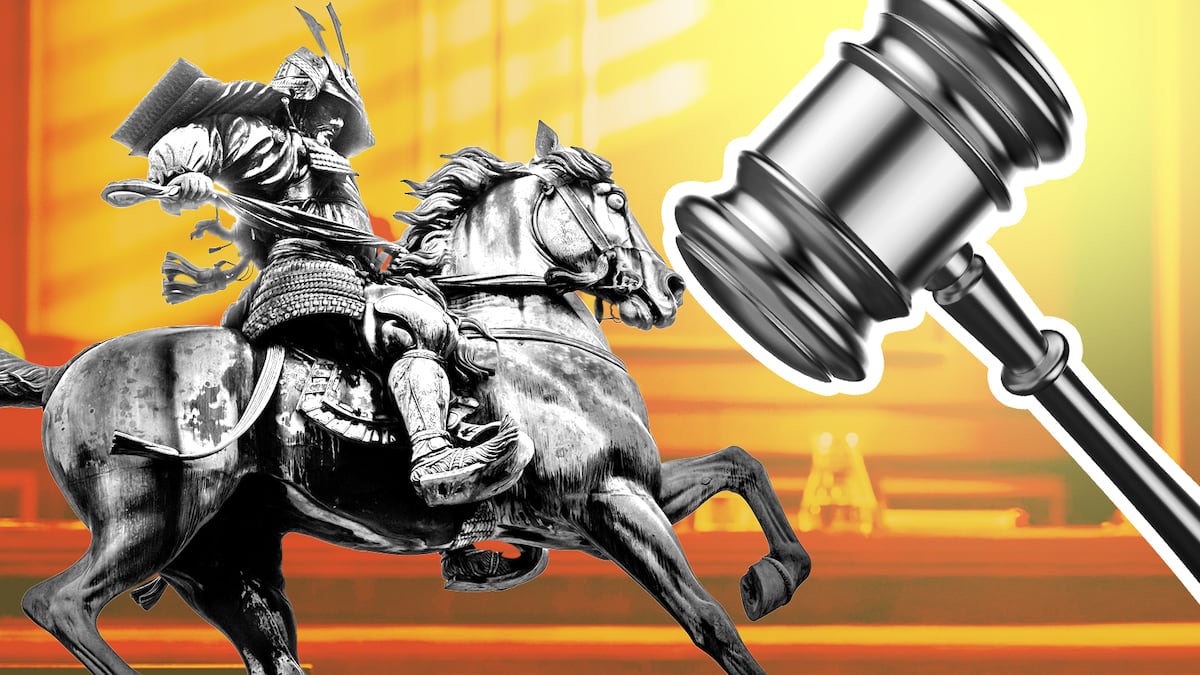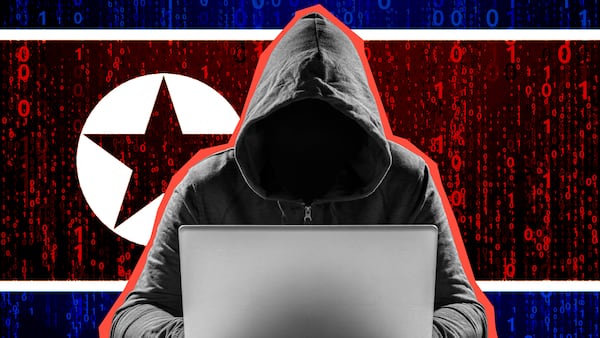- Samourai Wallet developer Keonne Rodriguez was sentenced to five years in prison.
- In a letter to the judge, his attorneys had requested a sentence of one year and one day.
- His co-founder will be sentenced later this month.
Samourai Wallet co-founder Keonne Rodriguez has been sentenced to five years in prison, his attorney confirmed to DL News on Thursday.
In July, Rodriguez and co-founder William Lonergan Hill pleaded guilty to conspiracy to operate an unlicensed money transmitting business.
Rodriguez’ five-year sentence was the maximum the judge could impose. The judge also ordered Rodriguez to pay a $250,000 fine, and ordered Rodriguez and Hill to pay more than $6 million in restitution — prosecutors’ estimate of the earnings from their illegal operation of Samourai, attorney Michael Krouse.
Hill will be sentenced on November 19.
Charges
The case was closely watched by crypto privacy advocates.
Launched in 2015, Samourai Wallet is a mobile Bitcoin wallet that was available on the Google Play store, where it was downloaded more than 100,000 times, according to court papers. It was removed from the store after the founders were arrested and charged last year.
According to prosecutors, privacy-enhancing features added to the wallet enabled cybercriminals to launder stolen crypto — and the founders knew it, promoting their product in private messages and public, online forums where users sought advice on “cleaning” dirty money.
In addition to the operation of an unlicensed money transmitting business, Samourai’s founders were also charged with money laundering.
The pair were set to go to trial this month. But they struck a deal with prosecutors in July, agreeing to plead guilty to the money transmission charge, which carried a maximum sentence of only five years in prison.
Had they been convicted of money laundering, the developers faced decades in prison.
Leniency
Last month, Rodriguez, 37, asked for leniency in a letter to judge Denise Cote in which his lawyers requested a sentence of one year and one day.
The letter portrayed the software as a modest, family man who never flouted the law outside his operation of Samourai Wallet.
“Both before and after his arrest, Mr. Rodriguez selflessly used his computer coding skills and blockchain tracing abilities to help victims of cryptocurrency theft recover their funds, which is work he hopes to continue after serving in sentence,” his attorney wrote.
“Mr. Rodriguez did not set out to create a tool that would be used to commit money laundering,” the lawyer continued.
“But over time, Mr. Rodriguez learned and understood that some of those users were storing and transferring Bitcoin derived from criminal activities, and he nonetheless continued operating the business without attempting to prevent the transmission of these funds. This was criminal conduct that he sincerely regrets.”
In a competing letter, prosecutors demanded he receive the full, five-year sentence.
“To generate revenue, boost Samourai’s business, and earn millions of dollars in fees, Rodriguez and Hill repeatedly solicited, encouraged, and invited criminals to use Samourai to conceal their transfers of criminal proceeds — ultimately resulting in large-scale money laundering and sanctions evasion,” they wrote.
“In his sentencing letter, Hill himself admits that inviting ‘computer hackers and other criminals’ to launder their crime proceeds through Samourai ‘spiraled well beyond acceptable limits.’”
Background
In 2017, Samourai Wallet launched a privacy-enhancing feature called Ricochet, which routed Bitcoin transfers through additional wallets to complicate attempts to trace the Bitcoin to its ultimate destination, prosecutors said.
Two years later, Samourai launched the Whirlpool feature, which mixes users’ Bitcoin, making it difficult, if not impossible, to trace.
More than $2 billion in Bitcoin has passed through the Ricochet and Whirlpool features, according to court papers. About $250 million of that Bitcoin came from various hacks and scams, prosecutors alleged.
And the Samourai co-founders had knowledge of this activity, according to their indictment.
In a WhatsApp exchange in January 2018, Rodriguez, asked to explain what “mixing” was, replied, “money laundering for Bitcoin,” said court papers.
On Dread, a darkweb alternative to Reddit, one user in the “laundromat” forum asked other users to recommend “secure methods to clean dirty BTC” so they would “never get caught.”
Hill recommended Samourai Whirlpool, according to the indictment.
The pair argued they had simply created a product meant to protect user privacy on an otherwise public ledger — the Bitcoin network.
“Far from the money-laundering bogeyman portrayed by the DOJby DOJ, Samourai Wallet was overwhelmingly used — by tens of thousands of everyday people — for a legitimate purpose: to keep their private financial information private,” Rodriguez’s attorney wrote in a motion to dismiss the charges.
“Essentially, Samourai allowed users to avoid posting the cryptocurrency-equivalent of their private credit card or bank statements on the internet for all the world to see.”
Privacy on trial
The Samourai developers aren’t the only ones to lean on that argument.
Roman Storm, the co-founder of crypto mixing service Tornado Cash, has been accused by US prosecutors of conspiring to operate an unlicensed money transmitting business, to launder money, and to evade US sanctions.
Unlike the Samourai developers, Storm took his case to trial, where a jury was unable to reach consensus on the sanctions evasion and money laundering charges. Jurors found him guilty of conspiring to operate an unlicensed money transmitting business.
In September, Storm asked a federal judge to toss all three charges.
Aleks Gilbert is DL News’ New York-based DeFi correspondent. You can reach him at aleks@dlnews.com.









